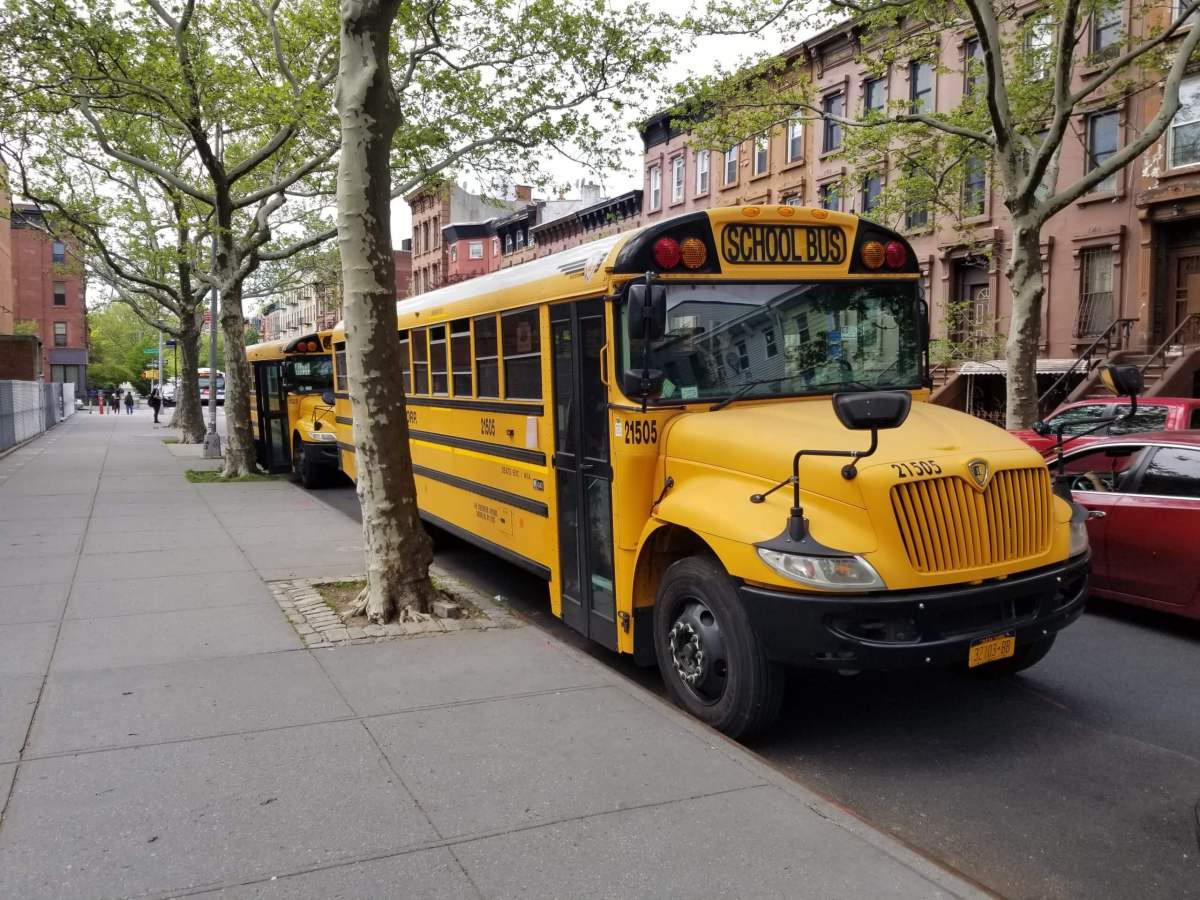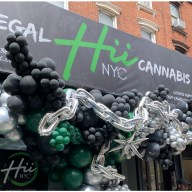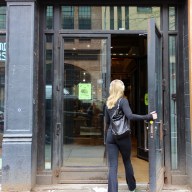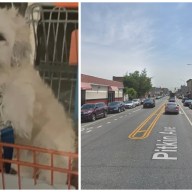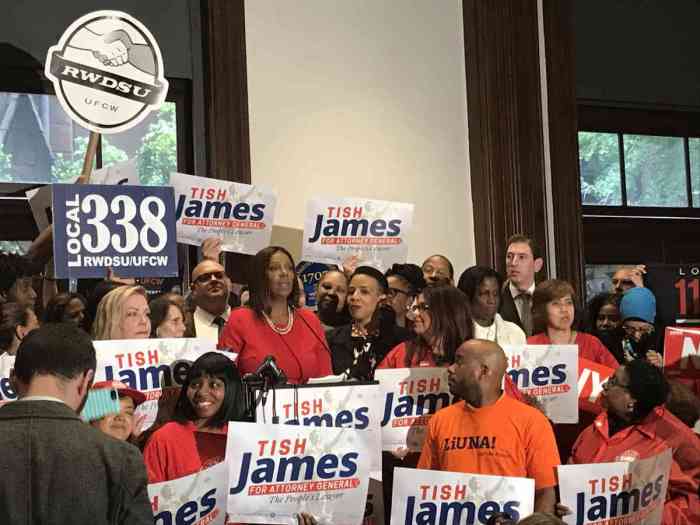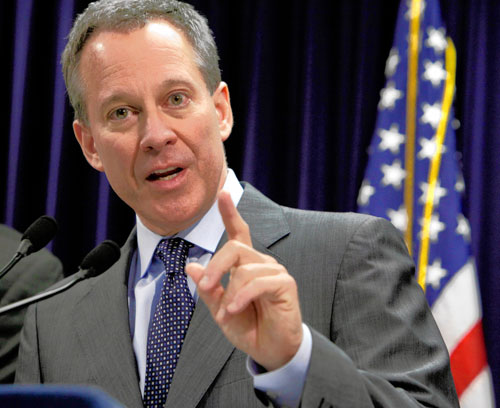Attorney General Letitia James announced a lawsuit Thursday against major Brooklyn-based school bus operator Jofaz for consistently violating city and state laws against vehicle idling, which she says has led to negative health ramifications for the youngest New Yorkers.
The city’s anti-idling regulations prohibit any operator from idling a motor vehicle for more than three minutes, with limited exceptions, with the time reduced to one minute around schools, while state regulations prohibit idling beyond five minutes.
But according to James’ lawsuit, filed Wednesday in Brooklyn Supreme Court, three bus companies — Jofaz Transportation, 3rd Avenue Transit, and Y&M Transit, all of which are owned by CEO Joseph Fazzia (Jofaz being a portmanteau of his name) — have persistently violated the idling law, often leaving their engines running for more than 10 minutes at a time near schools, residential areas, parks, and their bus yards.
After analyzing data from the “Geotab” installed on all city school buses — which tracks school buses via GPS and monitors engine data — investigators at the AG’s office found one Jofaz bus to have idled its engine for more than 10 minutes on 82 separate occasions between September and December 2019 at the company’s yard in Red Hook.
In the same time period nearby PS K140, where James held a press conference announcing the lawsuit on Thursday, investigators found 30 Jofaz buses idled longer than 10 minutes 285 times over the course of two months.
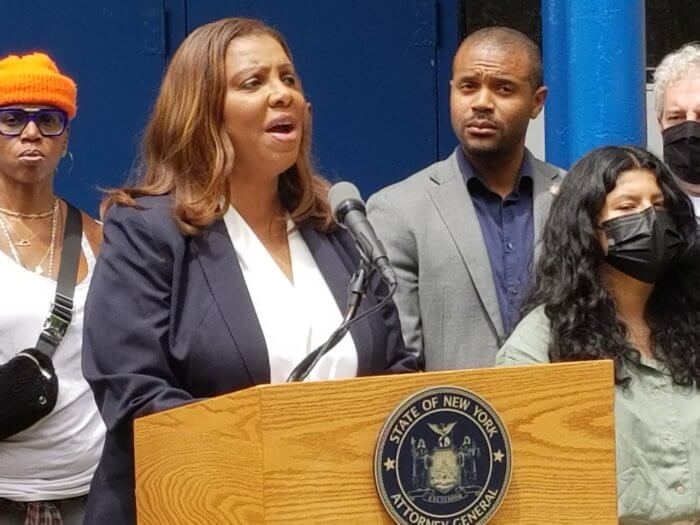
Jofaz’s persistent idling of its gas and diesel-powered buses causes massive amounts of carbon emissions, and contributes to high rates of asthma among children in the neighborhoods it serves, James said. The neighborhood’s air quality around PS K140 is in the 92nd percentile nationwide for levels of “dangerous particulate matter from car emissions,” the attorney general said.
“Today we’re seeking justice for all communities that cannot breathe, that have to breathe in this dirty air day-in and day-out,” James said at the May 12 press conference.
Idling disproportionately harms Black and brown New Yorkers, the AG added, with levels of air pollution consistently higher in neighborhoods of color than in white areas, which in turn leads to higher rates of asthma and other health complications.
James is seeking a court order against Jofaz requiring the three operators, which bus thousands of children to school every day, to follow the anti-idling law and specifically train their drivers not to leave their engines running.
“The companies need to be responsible for what their drivers are doing, about how idling harms communities, harms the children, and harms families. All of us pay the price that comes with air pollution: asthma, cancer, heart disease, and other serious health issues, particularly in vulnerable populations.”
Jofaz declined to comment when reached by Brooklyn Paper.
City law fines anyone violating the anti-idling law $250, and allows citizens to call in tips to the city’s Department of Environmental Protection and rake in an $87.50 reward, a quarter of the fine. Some New Yorkers have made six-figure paydays off of idling reports. The biggest violators, and those with the highest unpaid municipal tabs, are major courier companies, including Amazon, UPS, and FedEx.
Last year, then-Mayor Bill de Blasio said that the entire city school bus fleet will be electric by 2035, but electeds and advocates say that timeline is not nearly expeditious enough. Councilmember Chi Ossé, who represents Bedford-Stuyvesant and Crown Heights at City Hall, said the existing timeline is not fair to the 2,938 children in his district who visited the emergency room in 2016 for asthma-related health issues.
“2035 is too far away,” Ossé said. “Our climate can’t handle that.”


